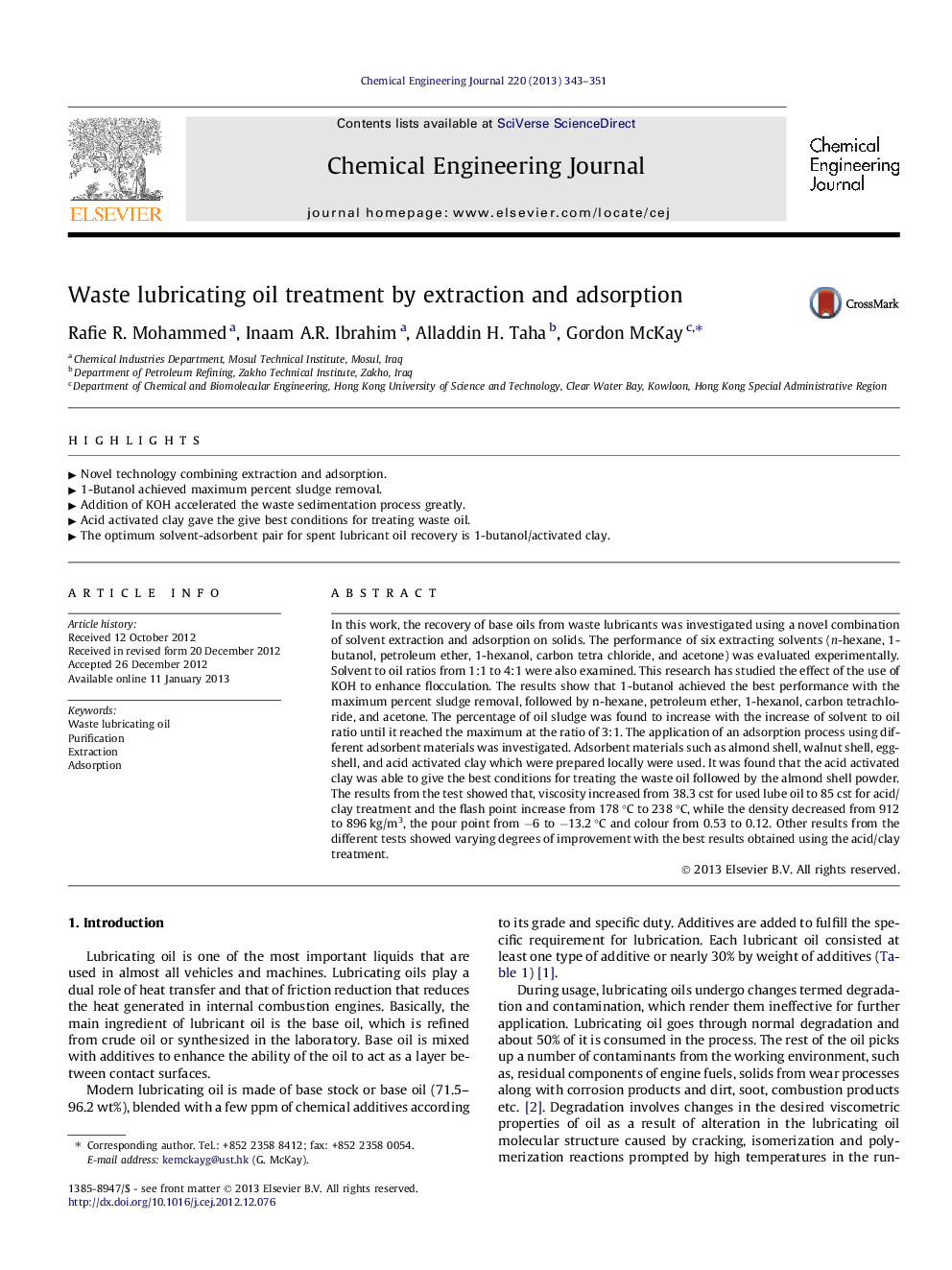| Article ID | Journal | Published Year | Pages | File Type |
|---|---|---|---|---|
| 148631 | Chemical Engineering Journal | 2013 | 9 Pages |
In this work, the recovery of base oils from waste lubricants was investigated using a novel combination of solvent extraction and adsorption on solids. The performance of six extracting solvents (n-hexane, 1-butanol, petroleum ether, 1-hexanol, carbon tetra chloride, and acetone) was evaluated experimentally. Solvent to oil ratios from 1:1 to 4:1 were also examined. This research has studied the effect of the use of KOH to enhance flocculation. The results show that 1-butanol achieved the best performance with the maximum percent sludge removal, followed by n-hexane, petroleum ether, 1-hexanol, carbon tetrachloride, and acetone. The percentage of oil sludge was found to increase with the increase of solvent to oil ratio until it reached the maximum at the ratio of 3:1. The application of an adsorption process using different adsorbent materials was investigated. Adsorbent materials such as almond shell, walnut shell, eggshell, and acid activated clay which were prepared locally were used. It was found that the acid activated clay was able to give the best conditions for treating the waste oil followed by the almond shell powder. The results from the test showed that, viscosity increased from 38.3 cst for used lube oil to 85 cst for acid/clay treatment and the flash point increase from 178 °C to 238 °C, while the density decreased from 912 to 896 kg/m3, the pour point from −6 to −13.2 °C and colour from 0.53 to 0.12. Other results from the different tests showed varying degrees of improvement with the best results obtained using the acid/clay treatment.
► Novel technology combining extraction and adsorption. ► 1-Butanol achieved maximum percent sludge removal. ► Addition of KOH accelerated the waste sedimentation process greatly. ► Acid activated clay gave the give best conditions for treating waste oil. ► The optimum solvent-adsorbent pair for spent lubricant oil recovery is 1-butanol/activated clay.
